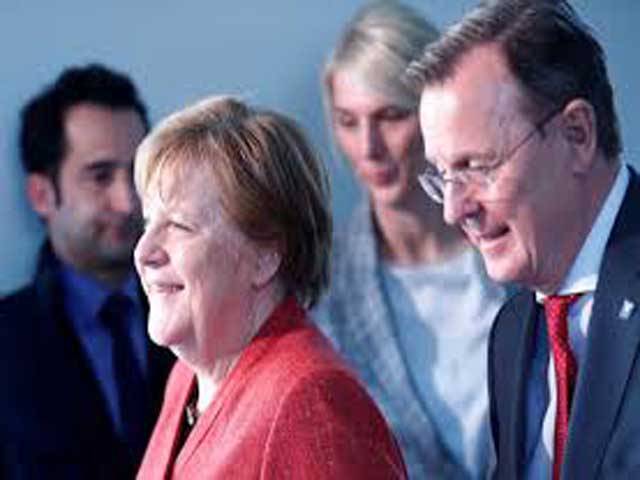BERLIN - The far-right Alternative for Germany (AfD) party will try to build on its successes in two regional votes last month and beat Chancellor Angela Merkel’s conservatives in another eastern state election on Sunday. Among a swathe of nationalist movements making waves across Europe, the AfD is the third largest party in Germany’s legislature behind Chancellor Angela Merkel’s Christian Democrats (CDU) and the centre-left Social Democrats (SPD). After surging into the national parliament for the first time in 2017, the AfD is trying to build momentum in the east this year and surged into second place in the eastern states of Saxony and Brandenburg in Sept. 1 elections. The AfD could fracture the vote in Sunday’s election in Thuringia, causing political gridlock, but its national growth appears to have stalled, with pan-German support only just above the 12.6% it won in the 2017 national election. “The AfD is strong in Thuringia,” said Forsa pollster Manfred Guellner. “However, on a federal level, they are not growing, they are not winning more votes now than they did in 2017 overall.” The AfD has harnessed voter anger over refugees and the planned closure of coal mines in the poorer and less cosmopolitan formerly Communist east of the country. Founded in 2013 on an anti-euro platform, the AfD swiftly morphed into a far-right, anti-immigration party.
Thursday, April 18, 2024
German far right tests Merkel’s conservatives in eastern state vote

Stefanos Tsitsipas advances in Barcelona
4:19 PM | April 18, 2024
Met Office predicts more rains across country till April 29
2:51 PM | April 18, 2024
Punjab changes school timings for summer season
1:55 PM | April 18, 2024
Enemies of Pakistan are unable to digest investment in the country: Ataullah Tarar
1:29 PM | April 18, 2024
IHC restores Bushra Bibi's appeal for shifting to Adiala Jail from Bani Gala
1:24 PM | April 18, 2024
Hepatitis Challenge
April 18, 2024
IMF Predictions
April 18, 2024
Wheat War
April 18, 2024
Rail Revival
April 17, 2024
Addressing Climate Change
April 17, 2024
Justice denied
April 18, 2024
AI dilemmas unveiled
April 18, 2024
Tax tangle
April 18, 2024
Workforce inequality
April 17, 2024
New partnerships
April 17, 2024
ePaper - Nawaiwaqt
Advertisement
Nawaiwaqt Group | Copyright © 2024





